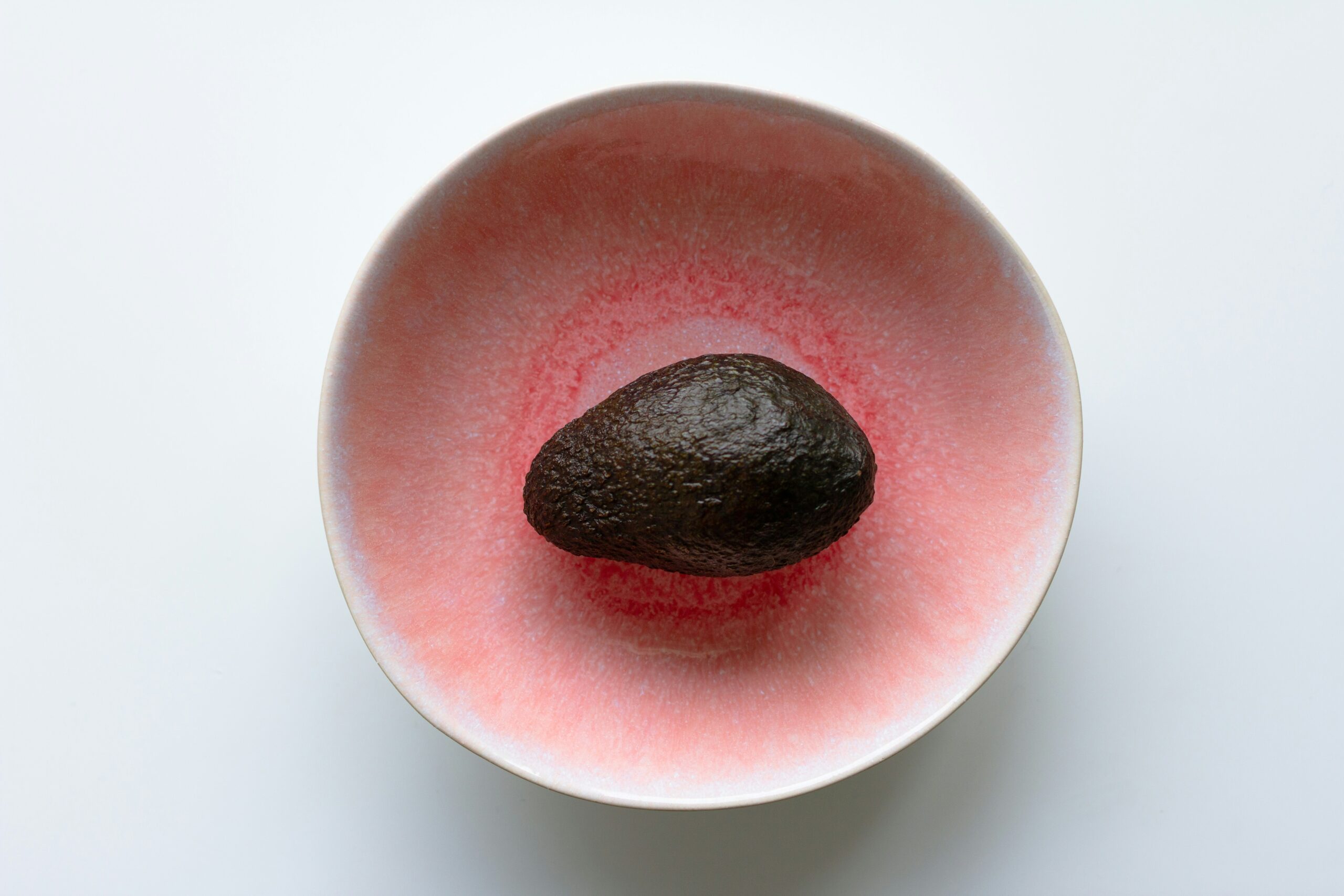
You have seen it in the news, Facebook, magazine articles, Instagram, commercials, TV – everyone telling you what to eat and what not to eat to be healthy. Ayayay! It’s no wonder we are all confused and a little skeptical.
One of the most damaging of these “expert health advice crazes” was the fat-free push. After all, it’s fat that makes us fat… right? But in an effort to make this tasteless, fat-free food taste better the manufactures added sugar. So what happened? We as Americans got fatter and much less healthy. We now know sugar and simple carbohydrates are the culprits to the obesity epidemic. Of course it’s not that simple, but eliminating sugar is a great place to start, along with putting fat back into our diet in the form of healthy fats and oils. (In the March edition we talked about stress – another culprit for obesity)
Our bodies need good quality fats and oil to maintain healthy arteries and cell membranes, produce healthy hormone levels and keep our brains working well. Healthy fats also aid in reducing inflammation in the body.
I often coach my clients to change out their cooking oils as an easy first step towards improving health. But of course, not all fats and oils are healthy, these would include vegetable oils, shortening and canola oil. But there are plenty of health benefiting fats and oils you can incorporate into your daily cooking. Keep in mind that oxidation is an important consideration when choosing and storing oils. Many of the cheaper oils quickly become rancid due to the contamination by light and heat; they should be stored in dark glass contaners. Coconut oil is an exception to this rule.
Six Healthy Fats for Cooking
Coconut Oil: Although classified as a saturated fat, coconut oil has many health-giving properties. This oil is full of lauric acid, capric acid and caprylic acid which provides natural antioxidant, antifungal and antibacterial support. Coconut oil has a high smoke point (the point at which it begins to burn or become damaged), making it an excellent choice for cooking methods that require a high heat.
Avocado Oil: This beautiful oil is high in vitamin E. Avocado oil also contains beta-sitosterol which has been proven to help lower LDL (bad) cholesterol. It also has a high smoke point so is great for cooking with high-heat. Since it is a mono-saturated fat, it may also speed up metabolic rate.
Walnut Oil: This oil is rich in antioxidants and has high levels of omega-3 essential fatty acids. It is also high in ellagic acid, helping to prevent some cancer cells from replicating themselves. Walnut oil contains natural melatonin, the hormone responsible for sleep wake cycles. It has also been shown to promote healthy arteries by lowering endothelin levels, a chemical that promotes artery inflammation. This helps to prevent arterial plaques. This oil also has a high smoke point and is delicious when used for stir-fry. Walnut oil can also be used in baking, substituting vegetable oil in a recipe.
Olive Oil: Quality is key here. Always purchase extra virgin olive oil as it has been extracted just by pressing the olives rather than extracting using heat or chemicals. Olive Oil is a monounsaturated fat and may help to lower LDL cholesterol. It may also have protective qualities for the digestive tract, cardiovascular system and help prevent gallstones.
Butter: Providing you do not have a dairy allergy, good quality, grass-fed butter is delicious and has some health promoting benefits. The milk coming from grass-fed cows, used to make the butter, has more nutrition than cows on a diet of grain. Grass-fed butter contains vitamin A, beta carotene (which also converts to vitamin A as your body needs it), and K2 which your body needs to regulate calcium levels important to your bone and heart health. Margarine, however, is NOT butter and I do not recommend ever eating it.
Flaxseed Oil: While flaxseed oil is not recommended for cooking as it will quickly oxidize with heat, it is a wonderful, health-giving oil when added to your diet. Because it oxidizes quickly it must be kept in a dark container in the fridge and will be good for about three weeks. Flaxseed oil is good for your skin and can be applied directly or mixed in with your lotion. The Omega-3 in flaxseed oil is beneficial for a child’s brain health as well. Add this oil to salad dressings, dips, sauces and smoothies.
Image Credit to K8

Dawn is an AFMC (Applied Functional Medicine Certified) Practitioner (https://afmccertification.com/)
She resides in Virginia and enjoys spending time with her 4 grown children and 13 grandchildren. Personal health challenges started her on a journey that led her to this field of study and ultimately coaching other people in addressing their own health challenges. She applies the principles of Functional Medicine, finding the root cause of a disease dynamic, to her coaching, educating her clients and helping them make the lifestyle changes necessary for addressing issues such as autoimmune disease, insulin resistance, hormone imbalance, gut health, and infertility.
Dawn provides one-on-one coaching, coaching groups and classes.
Feel free to reach out with questions – [email protected]
Subscribe for Updates
Sponsors
latest articles
Growth Boom: Lake Anna Sees Major Development Milestones

Roundabout Plaza Brings The Lazy Parrot, Pickleball and More in 2025

The Legacy of the Rose Valley Island Tree

The “Float and Rescue” Rubber Ducky of Lake Anna

The “Dog Days” of Summer

‘Wet Microburst’ Hits Lake Anna

You have seen it in the news, Facebook, magazine articles, Instagram, commercials, TV – everyone telling you what to eat and what not to eat to be healthy. Ayayay! It’s no wonder we are all confused and a little skeptical.
One of the most damaging of these “expert health advice crazes” was the fat-free push. After all, it’s fat that makes us fat… right? But in an effort to make this tasteless, fat-free food taste better the manufactures added sugar. So what happened? We as Americans got fatter and much less healthy. We now know sugar and simple carbohydrates are the culprits to the obesity epidemic. Of course it’s not that simple, but eliminating sugar is a great place to start, along with putting fat back into our diet in the form of healthy fats and oils. (In the March edition we talked about stress – another culprit for obesity)
Our bodies need good quality fats and oil to maintain healthy arteries and cell membranes, produce healthy hormone levels and keep our brains working well. Healthy fats also aid in reducing inflammation in the body.
I often coach my clients to change out their cooking oils as an easy first step towards improving health. But of course, not all fats and oils are healthy, these would include vegetable oils, shortening and canola oil. But there are plenty of health benefiting fats and oils you can incorporate into your daily cooking. Keep in mind that oxidation is an important consideration when choosing and storing oils. Many of the cheaper oils quickly become rancid due to the contamination by light and heat; they should be stored in dark glass contaners. Coconut oil is an exception to this rule.
Six Healthy Fats for Cooking
Coconut Oil: Although classified as a saturated fat, coconut oil has many health-giving properties. This oil is full of lauric acid, capric acid and caprylic acid which provides natural antioxidant, antifungal and antibacterial support. Coconut oil has a high smoke point (the point at which it begins to burn or become damaged), making it an excellent choice for cooking methods that require a high heat.
Avocado Oil: This beautiful oil is high in vitamin E. Avocado oil also contains beta-sitosterol which has been proven to help lower LDL (bad) cholesterol. It also has a high smoke point so is great for cooking with high-heat. Since it is a mono-saturated fat, it may also speed up metabolic rate.
Walnut Oil: This oil is rich in antioxidants and has high levels of omega-3 essential fatty acids. It is also high in ellagic acid, helping to prevent some cancer cells from replicating themselves. Walnut oil contains natural melatonin, the hormone responsible for sleep wake cycles. It has also been shown to promote healthy arteries by lowering endothelin levels, a chemical that promotes artery inflammation. This helps to prevent arterial plaques. This oil also has a high smoke point and is delicious when used for stir-fry. Walnut oil can also be used in baking, substituting vegetable oil in a recipe.
Olive Oil: Quality is key here. Always purchase extra virgin olive oil as it has been extracted just by pressing the olives rather than extracting using heat or chemicals. Olive Oil is a monounsaturated fat and may help to lower LDL cholesterol. It may also have protective qualities for the digestive tract, cardiovascular system and help prevent gallstones.
Butter: Providing you do not have a dairy allergy, good quality, grass-fed butter is delicious and has some health promoting benefits. The milk coming from grass-fed cows, used to make the butter, has more nutrition than cows on a diet of grain. Grass-fed butter contains vitamin A, beta carotene (which also converts to vitamin A as your body needs it), and K2 which your body needs to regulate calcium levels important to your bone and heart health. Margarine, however, is NOT butter and I do not recommend ever eating it.
Flaxseed Oil: While flaxseed oil is not recommended for cooking as it will quickly oxidize with heat, it is a wonderful, health-giving oil when added to your diet. Because it oxidizes quickly it must be kept in a dark container in the fridge and will be good for about three weeks. Flaxseed oil is good for your skin and can be applied directly or mixed in with your lotion. The Omega-3 in flaxseed oil is beneficial for a child’s brain health as well. Add this oil to salad dressings, dips, sauces and smoothies.
Image Credit to K8

Dawn is an AFMC (Applied Functional Medicine Certified) Practitioner (https://afmccertification.com/)
She resides in Virginia and enjoys spending time with her 4 grown children and 13 grandchildren. Personal health challenges started her on a journey that led her to this field of study and ultimately coaching other people in addressing their own health challenges. She applies the principles of Functional Medicine, finding the root cause of a disease dynamic, to her coaching, educating her clients and helping them make the lifestyle changes necessary for addressing issues such as autoimmune disease, insulin resistance, hormone imbalance, gut health, and infertility.
Dawn provides one-on-one coaching, coaching groups and classes.
Feel free to reach out with questions – [email protected]
Subscribe for Updates
Sponsors
latest articles
Growth Boom: Lake Anna Sees Major Development Milestones

Roundabout Plaza Brings The Lazy Parrot, Pickleball and More in 2025

The Legacy of the Rose Valley Island Tree

The “Float and Rescue” Rubber Ducky of Lake Anna

The “Dog Days” of Summer

‘Wet Microburst’ Hits Lake Anna


Growth Boom: Lake Anna Sees Major Development Milestones
Article By Jen Bailey
Piedmont Christian School Hosts Golf Fundraising Tournament
Article By Jen Bailey








